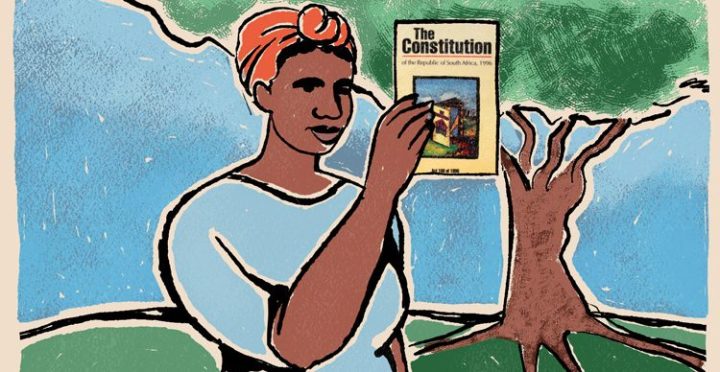GROUNDUP DEMONSTRATION DEMERIT?
Court battle looms over whether you have to pay to protest

Right2Know versus City of Johannesburg case will be heard next week.
Activists in Johannesburg say they are being made to pay to protest. Fees for permission to protest can run as high as R15,000.
Next week, the Right2Know Campaign and the Gauteng Housing Crisis Committee, with the assistance of the Centre for Applied Legal Studies (Cals), will argue in the Johannesburg high court that this is unlawful and stymies the constitutional right to protest.
They say neither the Constitution nor the Gatherings Act prescribe that a fee must be paid.
Their application is being opposed by the Johannesburg Metropolitan Police Department (JMPD) and the City of Johannesburg.
The Human Rights Commission has applied to intervene in the matter as a “friend of the court” and supports the position that protests should be free of charge.
The applicants say the right to protest is enshrined in the Constitution and public demonstrations are further governed by the regulations of Gatherings Act.
They say they regularly organise protests in Johannesburg. As required, they engage with the municipality and are told they must pay a fee as a “necessary precondition to organising a protest”.
The fees charged by the City have ranged from R172 for a picket convened by a civil society organisation to R15,000 for a union strike march.
In his affidavit, national coordinator of the Right2Know campaign Axolile Notywala said: “The right to protest helps us to demand accountability from government and big business.
“A large number of people we represent are unemployed, living on income grants or earning very low wages.
“Therefore there is a real risk of our members being deterred from exercising their constitutional right to assembly, demonstration, picket and petition.”
The organisations say they are told that if the fee is not paid and the protest continued, it would be deemed an unlawful protest and police presence would be light.
Notywala said: “The JMPD officials create the impression that it is a precondition for the gathering to be approved … that if no payment is made the protest will not take place … alternatively that if no payment is made there will be no law enforcement present. And yet, simply stated, the respondents do not have any legal power to levy fees for gatherings in terms of the Act or any other law.”
Notywala said the absence of law enforcement had consequences — it left protestors in a “vulnerable position” and cast doubts on the legitimacy of the protest.
He said in past interactions, City officials had said the fee was a “planning cost” determined on tariffs imposed for traffic services.
“We submit that it is unlawful for the JMPD to charge a fee to the public for the discharge of their ordinary public duty to maintain law and order, to keep the peace and to protect life and property.
“Furthermore, they cannot do so at the cost of limiting, actually violating, constitutional rights.”
In heads of argument, the City and the JMPD say the fee is not in conflict with the Act and the City has legislative power, through the Municipal Systems Act, to levy fees for services, such as the need for increased traffic policing as a result of protests.
In terms of the tariffs, all non-governmental and non-profit organisations are given an 80% discount.
They deny the payment of the fee is conditional for the event to go ahead.
“In fact, the authorisation is granted first before the convenor is referred to the finance section of the JMPD, where he or she is told how much the fee will be. If a convenor does not pay for the service, the JMPD does not provide full deployment of the service, but only a basic level.”
They said several protests had gone ahead, in spite of fees not being paid.
First published by GroundUp.
[hearken id=”daily-maverick/9366″]



















 Become an Insider
Become an Insider
Comments - Please login in order to comment.